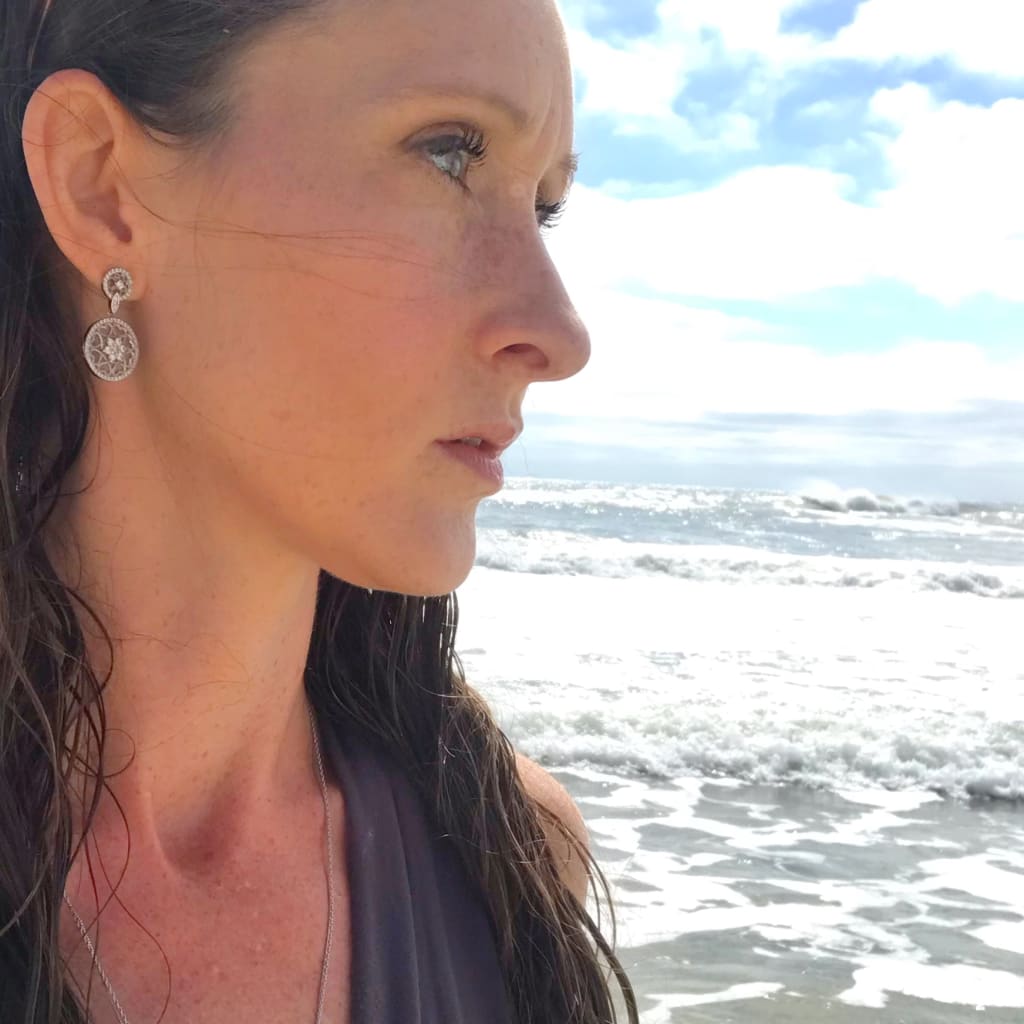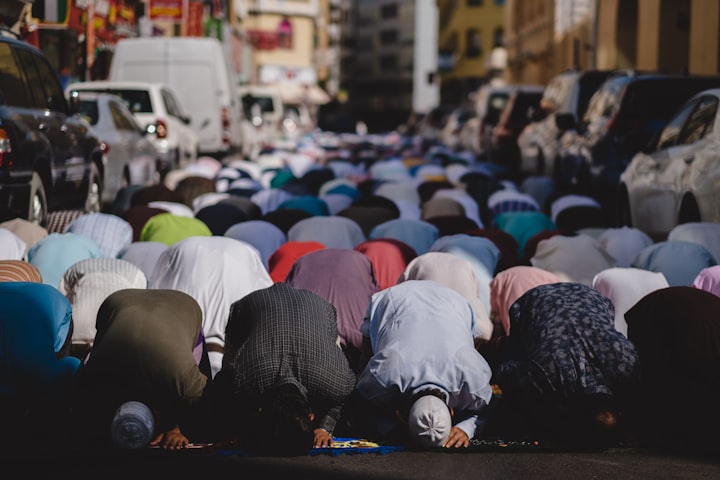
There’s an episode of Desperate Housewives where Lynette, nearing the end of her battle against Hodgkin’s disease, is feeling amorous and energized again, but when she and her husband Tom go to get it on, Lynette’s wig slips. She throws it on the floor and the sight of his wife’s bald head turns Tom’s (ahem) bald head into a shrinking violet.
When it later comes out in the episode that Tom isn’t aroused by his wife’s baldness, Lynette angrily reminds him that, “I have cancer.” In a matter of episodes, Lynette has learned how to play her cancer card; in her defense, she’s needed to, but the epiphany, as her husband asks if she’s once asked how the disease impacts him (no you didn’t, did you Lynette?), is crystal clear…she has become one of those people who identifies so strongly with the trauma that happened to her, that it has consumed her identity.
In case you never watched the show, in which case, sorry for that plot spoiler, Lynette’s character prior to the cancer in season 4 identified as a baller ad-agency exec and as a mom to four young kids and as a wife to a great husband and as a co-pizza shop owner and as a regular member of a meddling gang who rides around in a coffee cup solving neighborhood mysteries. Somehow all of those things became stripped away in light of her personal tragedy.
In fact, it’s funny how quickly we can forget who we are in the face of tragedy, but it’s also logical.
Extreme life events like being diagnosed with cancer, losing a child, losing a spouse, living through war, having your house burn down, getting fired, losing your entire life savings…whatever…can be so disruptive that they do shake the foundation of our entire identity.
These life events change our sense of security in the world and our understanding of ourselves. We might learn things about ourselves that we didn’t know, and in the aftermath of learning how fragile life is and how in a moment everything in our world can be taken away and forever altered, of course we lose ourselves…at least for a time.
Two years ago, the worst thing that I hope will ever happen to me happened. My husband, my best friend, Sean, died. I went from a life and an identity that I quite liked—wife to a great husband and mom to three crazy daughters—to one I never envisioned I would own: widow.
During sessions with my holistic therapist, we did archetypals. I read a book about archetypes as well. Our archetypes are fluid. Sometimes, when we are forced into archetypal shifts, the jolt can be so jarring that we get stuck. I strongly believe there is an element of this shifting that is what causes PTSD.
For example, take the pacifist who joins the military to pay for his education. After basic he’s put into a combat role in which he has to do tours of service during actual war; he’s forced into the warrior archetype. Upon returning home, with no therapeutic support, he’s supposed to amalgamate back into society and to reprise his pacifistic / student identity. People don’t understand why he can’t stop talking about his military service or why he seems to overreact in certain contexts or drink too much when socializing.
The reality he has PTSD not only from abrupt archetypal shifting but also from shifts that he never was meant for. He saw things that he was ill-equipped to cope with. This person suffers trauma because he cannot move forward from being forced into the role he never wanted.
Or, let’s take the warrior whose archetypal role is living its best life in an active military scenario. After service, this person returns home and is expected to go back to whatever life he had before, but the warrior has been activated, and he wants to stay a warrior. This person suffers trauma because he is unwilling to move forward and to engage a different archetypal role.
When we are forced into archetypal roles abruptly, there’s risk of getting stuck. In fact, the book I read started with a story about a woman, a wife, who became a widow and who got stuck in the widow role after her husband was murdered. Grief and trauma archetypal roles are very easy to get stuck in as illustrated by Lynette’s plotline in Desperate Housewives.
But, how do we get unstuck? Because I am more than a widow. As I piece my life back together and regain focus, I remember I am also a writer, an editor, an artist, a teacher, and an athlete. I’m an emerging yogi, a meditator, and a reader. My primary archetypes are creator and caregiver (equally), magician, lover (this means I’m an idealist, not a whore), seeker, and innocent.
In other words, I am not just a widow, but if I put the widow card aside in a public forum like say…social media…and acknowledge that I’m in a relationship what does that change beyond public perception? What does it change within me?
Recently (a day ago, whatever), my SO of nearly two years (yes, I started dating too soon, which is a totally different blog, but I regret nothing, so let it go, Elsa and my mom) and I changed our status updates reflect our relationship. I dropped the widow card.
It feels scary and confusing…almost as scary and confusing as it was to pick it up. I’d identified as married for nine years before my husband died…then I was a widow. Now, I’ve identified as a sad and broken person for two years. I’ve told stories with my banner of grief held high. I’ve shared what I learned about love and life—mostly in hindsight—through storytelling. Does putting down the widow card mean that I can’t do that anymore?
I ask this because obviously, the answer is no. I can tell whatever stories I want. For people who say, “Get over it, you’ve moved on,” I say there is no moving on, but there is being present.
I selectively revisit my past when I know that there are things it is reaching out to teach me. But, ultimately, I cannot change what happened. It affected me deeply, which is a lovely way of saying it burned me to the ground, and I had to claw my way back to life. I had to choose life when the walls were too slick and too steep, when the easier option would’ve been to succumb to the blackness of the widow’s flowing veil, a veil as black and as softly rippling as the quiet river at dusk, where under the surface the only place to go is down.
Do I really want that to be who I am? Because I could…I could remarry the comforting W, the widowhood in which I remain eternally married to Sean. It’s not wrong; lots of widows and widowers do it. Basically, you choose to go on with certain areas of life, but in romantic love and companionship, you choose to let that part of you be buried with your partner.
It’s romantic, isn’t it? But it’s also to each her own. I knew a long time ago that I would be receptive to falling in love again. The end where you watch your love die, be damned. I knew it when I was planning Sean’s beautiful memorial bronze. When she asked why I didn’t want one bronze for our adjacent plots, I blurted, “I’m 36-years-old. I don’t know what’s going to happen.”
Then, months later, while I was running, I tried my wedding ring off.
The love, friendship, respect, admiration, caring, sadness, or heartache didn’t go anywhere, but the fact that I wouldn’t dwell in widowhood forever was implanted into me.
Losing Sean is something that happened. It is the biggest thing that’s ever happened to me. Bigger than performing at the Sydney Olympics. Bigger than having four babies. Bigger than losing Jude. Bigger than spending two weeks in Italy. Bigger than every academic achievement. Bigger than every publication. It’s bigger because I feel more now than I’ve ever felt in my life. I feel more love, more pain, more life. I am one who came from two—Sean and who I was with Sean. That person is a lot of things, but definable by the experience that forced her creation isn’t one of them.
It’s very scary to cast off an archetype, a cloak, a cape, an identity, that you’ve worn for such a long time. I will, of course, always be a widow. Dating doesn’t deny me that experience nor does remarriage if it happens or anything else. I’ll always be a widow, but will it be what I hide behind, what I have on my profile? Will it be what I tell people when my circumstances are bigger than I am?
No. …At least not all of the time. But for now, I have taken this one very big baby step forward and have changed my profile status, which is significant. When you’re willing to view yourself through another archetypal lens, you view others to as well; this gives you autonomy over your identity, over how others see you and perhaps more importantly, how you see you. This doesn’t change who you are, but it does change how you move forward.
About the Creator
Vonnie
Wildly inappropriate woman writes satire, occassionally delving into strange places with feels and all. Semicolons are the best, but em dashes are pretty sweet, too. Widow. Mother. Yogi. Life is short & weird, so let's have fun.






Comments
There are no comments for this story
Be the first to respond and start the conversation.